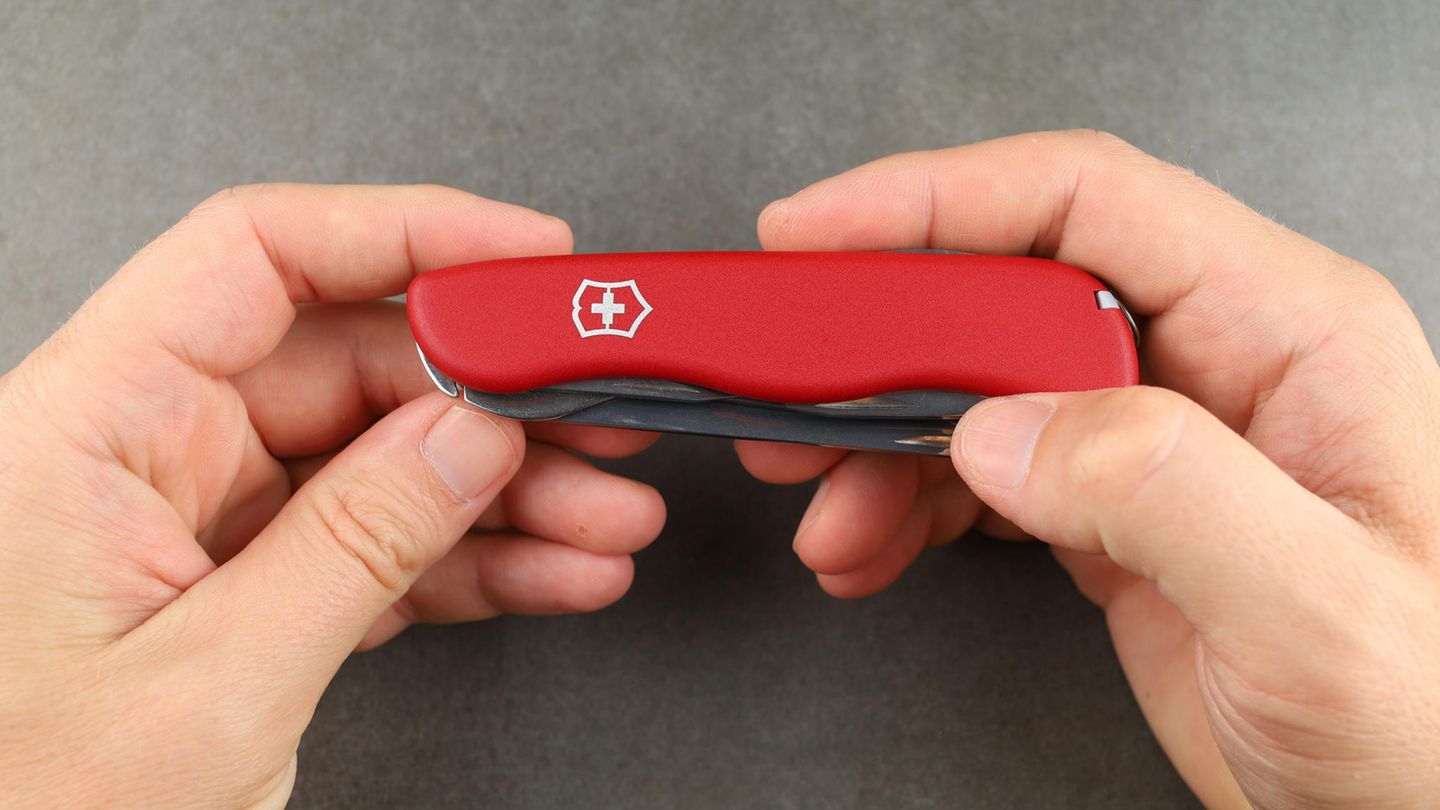Pocket knives are considered weapons almost everywhere and are banned in many places. In order to still stay in their customers’ pockets, the best-known manufacturer is planning a somewhat bizarre innovation.
One would think that a blade belongs to a pocket knife like the time display belongs to a watch or a tire belongs to a bicycle. The traditional Swiss company Victorinox has announced that this does not have to be the case forever. Its pocket knife will soon also be available without a blade, said company boss Carl Elsener in an interview with Schweizer Blick.
The aim of the measure is to counter weapons regulation laws that prohibit the carrying of knife blades in many places. “The blade creates a weapon image in some markets,” said Elsener. And although the company also supplies entire armies with its “soldier’s” and “officer’s knives,” this is no longer desired.
Pocket knife versus gun ban
Austria’s Interior Minister announced a legislative proposal for a general ban on weapons and, in particular, a ban on carrying knives in public spaces. Austrian authorities can currently define weapon ban zones in certain places.
Things currently look less regulated in Germany. If the blade can only be unfolded with both hands, pocket knives are not prohibited under weapons law. Nevertheless, complete weapons bans also apply in this country, which also include pocket knives.
There are currently even fewer restrictions on pocket knives in Switzerland. Only knives that are “opened with one hand, such as switchblades and butterfly knives, as well as daggers with symmetrical blades” are prohibited there, summarizes the Swissinfo portal.
So what might a bladeless pocket knife look like and who would want to use it? According to the interview, Elsener, for example, has in mind a multifunctional tool for cyclists. A combination of wrenches or a threading aid for bicycle tubes might be conceivable.
Victorinox currently produces 135,000 knives every day. In addition to pocket knives, this also includes kitchen knives and those for professional purposes. 2,200 employees work for the traditional company, 1,200 of them in Switzerland.
Sources: ,
Source: Stern




